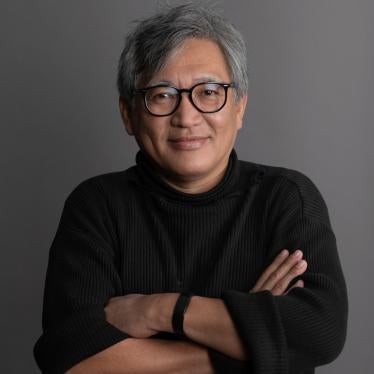I’ve spent the last two days in a Jakarta hotel listening to more than 20 hours of recollections of
Indonesia’s most sensitive, taboo topic: the state-orchestrated 1965-66
massacres that killed more than 500,000 people.
A two-day government-supported
symposium, “Dissecting the 1965 Tragedy: An Historical Approach,” provided an unprecedented public forum for discussion about the grisly details of the atrocities of 50 years ago. The official narrative has long treated those killings as a justified and heroic response against an Indonesian Communist Party plot to overthrow the government, which began with the murder of six army generals on September 30, 1965.
The symposium allowed Indonesians to hear an alternate account from survivors of the killings and family members of the victims. They described crimes by government security forces and paramilitary groups under their control, including mass executions and kidnappings, rampant rape and unlawful detention. They described how the government extended the injustice of those crimes through decades of discrimination against an estimated 40 million surviving accused “communists” and their descendants. The symposium evoked the more visceral moments of documentary filmmaker Joshua Oppenheimer’s award-winning films about the massacres, “The Act of Killing” and “The Look of Silence.”
Indonesian government officials at the symposium were clearly uncomfortable with this very public airing of details of alleged gross human rights abuses. Indonesia’s security minister, Luhut Binsar Pandjaitan, challenged the accuracy of the estimated half-million death toll and ruled out the possibility of an official apology for those abuses. But the symposium’s chairman, retired general Agus Widjojo, who himself is the son of one of the murdered generals of September 1965, urged participants – mostly elderly men and women – to tell their stories. Widjojo also dismissed allegations, made by nationalist groups that oppose accountability for the massacres, that the symposium was an effort “to revive communism.”
The symposium captivated the interest of the Indonesian public. The hashtag #Simposium65 and #Ingat65 became a trending topic on Twitter as Indonesian television beamed near-non-stop coverage of the event along with its stream of heart-wrenching testimonies nationwide. The symposium was a very tentative first step toward what hopefully will become a meaningful, sustained, and public truth-telling process about the events of 1965-66, and justice for the victims. The question remains whether the Indonesian government has the political courage to pursue that justice.









